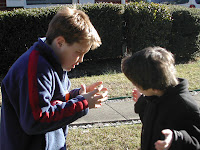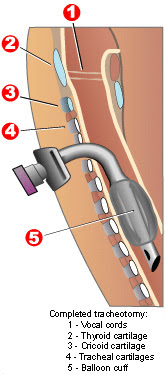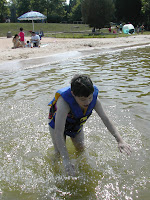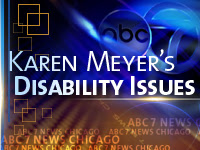
I've written several times in the past about people who speak to Ashley and then get frustrated because she seems to ignore them. I refuse to put a sign on her saying, "I am deaf", so I have decided to share some myths about deafness. You will notice that I left out the obvious myth - "People who are deaf can actually hear sometimes!"
MYTH: People who are deaf cannot use the telephone
Some hard-of-hearing people have enough residual haring to talk on the phone. People who are deaf often use a device called a TTY and a state relay system for phone line communication.
MYTH: People who are deaf are also mute.
It is incorrect to assume this. Some may choose not to use their voices if they think they will be difficult to understand or have inappropriate pitch or volume. In any case, terms like “deaf and dumb” or “deaf mute” are considered offensive today.
MYTH: Unusual sounding speech means a person has mental retardation.
Speech development depends greatly on one’s ability to hear himself or herself talk. For the person who is deaf, the foundation for learning speech is not there. It has nothing to do with intelligence.
MYTH: People who are deaf can read lips
Lip-reading is a skill that some deaf or hard-of-hearing people have. Others do not. Even with the best lip-readers, it is important to remember that only about 25% of speech is visible on the lips. Some words look almost exactly the same – for instance, the words “battle” and “paddle”.
MYTH: Hearing aids completely correct hearing loss
Hearing aids are assistive devices which improve hearing for some individuals. Hearing aids do not “correct” hearing. A hearing aid may enable a person to hear someone’s voice, even though she or he may not be able to understand distinct words. Just because someone wears a hearing aide does not mean the person hears normally.
MYTH: People who are deaf are not very bright of educated because they have not learned to talk or do not use proper English grammar.The primary language, or first language, of the Deaf Community is American Sign Language. English is a second language. Most deaf and hard-of-hearing people learn English usage and have speech training, but naturally enough they may find it easier to use their primary language most of the time.
MYTH: People who are deaf lead totally different lives from other people.
Deaf people are set apart by only one thing. As a former president of Gallaudet University once said, “Deaf people can do anything but hear.”
Coming tomorrow...myths about blindness.

















